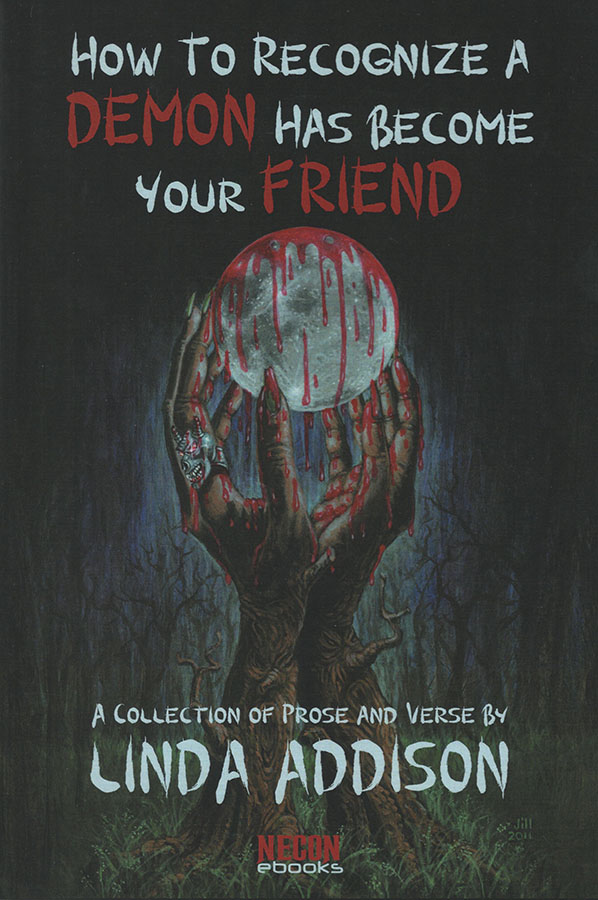

The horror!
Techie by day and horror writer by night, CMU alumna Linda Addison has scared up a dual career
By Tina Tuminella
Linda Addison has had two careers — software engineer and horror writer — and they’re more similar than you might think.
“Both require discipline,” Linda says. “You need to possess the ability to see an arc. With software programming, you start with a general task and then need to drill down, then debug before achieving results — and the same can be applied to writing a story. The debugging is the rewriting.”
Now retired from the software industry and living in Tucson, Arizona, it’s clear that Linda is good at writing both code and poetry. She is a five-time winner of the Horror Writers Association’s (HWA) Bram Stoker Award for her poetry collections, and she received a lifetime achievement award from the HWA in 2018. In 2020, the Science Fiction Poetry Association honored her with a Grand Master of Fantastic Poetry Award, making Linda the first Black recipient of the award.
The combination of the two professions may seem unusual, but it was clear to Linda early on that a stable job in the tech world would give her the space for her creative writing endeavors, and she credits her CMU education for providing that chance.
“CMU was the gate to a better life,” she says.
While Linda spent her entire career in tech, she also consistently authored horror poems and stories since graduating from Carnegie Mellon with a bachelor’s degree in mathematics in 1974. The programming job was a passion that paid the bills, but her love of storytelling — especially the spooky tales — stems from her childhood.

“My mother was an amazing fablemaker,” Linda says. “She naturally knew how to leave us kids in suspense, by ending an evening of storytelling with a cliffhanger. She had a beautiful, wonderful, natural rhythm of telling stories.”
Linda’s mother, Janet Webster, had a masterful touch with the stories she told, even weaving in Linda and her eight siblings as characters in the tales. That talent was passed to Linda, she says, who often turned to her own stories when she was asked to entertain her brothers and sisters in their Philadelphia-area home.
“What I’m interested in is how humans react to scary situations. That tension drew me in. In the end, I care about the strength of people, and my characters demonstrate this. I don’t write victims.”
A lifetime of storytelling — and of watching horror movies with her mother — nudged Linda to start writing her own scary stories when she was in junior high school. There, she says, she met her “angels,” the school librarians who recognized her love of reading, especially fantasy and science fiction.
“I was an introvert who read all the time,” Linda says. “I would start at A with Asimov and continue through the alphabet. But I was also interested in math and science.”
After she won a science fair in high school where the prize was a year’s subscription to Scientific American, Linda realized something that set her on her path.

“Part of my brain was excited by science and math and part of my brain was excited by science fiction,” she says. “I still am that person.”
Linda says her literary influences include Edgar Allen Poe, and she finds the musical prose of Shakespeare, Eudora Welty and Langston Hughes particularly fascinating. And she is most interested in the psychological aspect of horror stories, not the “slash and dash” elements.
“What I’m interested in is how humans react to scary situations,” she says. “That tension drew me in. In the end, I care about the strength of people, and my characters demonstrate this. I don’t write victims.”
“It's so important to promote others. I’m on committees to help usher in new writers to the horror community, and I find that so satisfying. And there’s nothing like having someone say, ‘I read this poem of yours and it’s changed my life.’ You can’t buy that. It doesn’t get any better.”
What scares a horror writer?
“Human beings,” Linda says, adding “humans making decisions without using their full capacity and critical thinking.”
That leads to a frequent theme of her writing — humans who do harm to others or those who believe others are beneath them — and, she says, she would like to explore that psychology in her future writing.

She’ll likely have that chance, because she says she’s busier than ever. Her work appears in the newly published anthology of stories, Bestiary of Blood, and she and fellow author Jamal Hodge recently completed a collaborative poetry project titled Everything Endless, a “speculative, cosmic journey through inner and outer space” that includes 55 science fiction poems. She says she is writing a new novel featuring a multi-reality plot incorporating quantum mechanics, and future projects include adapting her stories to the big screen.
But despite that full schedule, Linda says she relishes the chance to mentor others who are starting out in the horror genre.
“It's so important to promote others,” she says. “I’m on committees to help usher in new writers to the horror community, and I find that so satisfying. And there’s nothing like having someone say, ‘I read this poem of yours and it’s changed my life.’ You can’t buy that. It doesn’t get any better.”